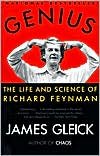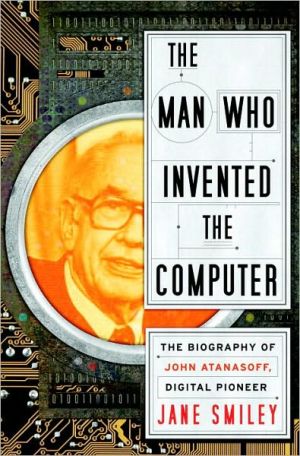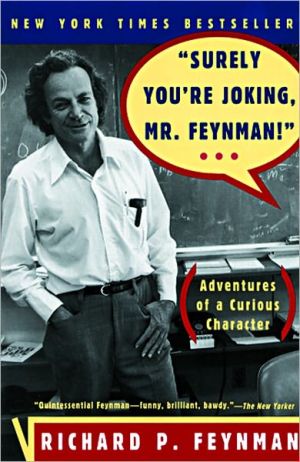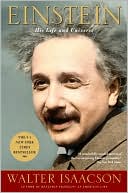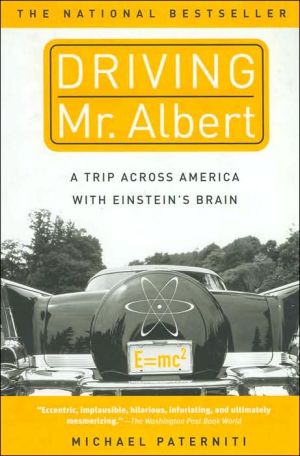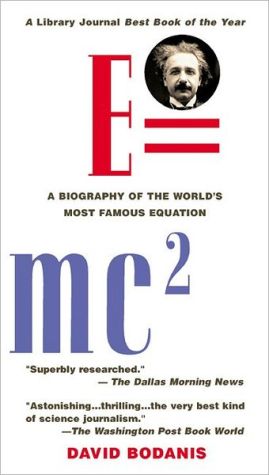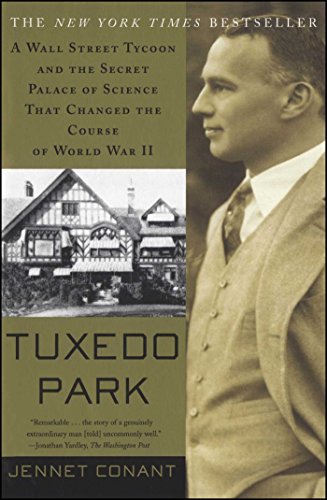Genius: The Life and Science of Richard Feynman
From the author of the national bestseller Chaos comes an outstanding biography of one of the most dazzling and flamboyant scientists of the 20th century that "not only paints a highly attractive portrait of Feynman but also . . . makes for a stimulating adventure in the annals of science" (The New York Times). 16 pages of photos.
Search in google:
From the author of the national bestseller Chaos comes an outstanding biography of one of the most dazzling and flamboyant scientists of the 20th century that "not only paints a highly attractive portrait of Feynman but also . . . makes for a stimulating adventure in the annals of science" (The New York Times). 16 pages of photos. Publishers Weekly It would be hard to tell personal stories about the late Nobelist Feynman (1918-1988) better than the subject himself did in What Do You Care What Other People Think? To his credit, Gleick does not try. Rather, he depicts Feynman's ``curious character'' in its real context: the science he helped develop during physics' most revolutionary era. Fans of Feynman's own bestseller, ``Surely You're Joking, Mr. Feynman! , '' won't be disappointed by his colleagues' recollections of his reckless obsession with doing science (a grad-school dorm neighbor once opened Feynman's door to find him rolling on the floor as he worked on a problem); but the anecdotes punctuate an expanded account of Feynman the visceral working scientist, not Feynman the iconoclast. This biography wants to measure both the particle and the wave of 20th-century genius--Feynman's, Julian Schwinger's, Murray Gell-Mann's, and others'--in the quantum era. Gleick seems to have enjoyed the cooperation of Feynman's family plus that of a good many of his colleagues from the Manhattan Project and the Challenger inquiry (in which Feynman played a scene-stealing role), and he steadily levies just enough of the burden of Feynman's genius on the reader so that the physicist remains, in the end, a person and not an icon of science. A genius could not hope for better. Gleick is the author of Chaos: The Making of A New Science. (Oct.)
Prologue3Far Rockaway17MIT51Princeton93Los Alamos153Cornell207CalTech281Epilogue429Acknowledgments441Notes445A Feynman Bibliography493Bibliography499Index517Illustration Credits532
\ Publishers Weekly - Publisher's Weekly\ It would be hard to tell personal stories about the late Nobelist Feynman (1918-1988) better than the subject himself did in What Do You Care What Other People Think? To his credit, Gleick does not try. Rather, he depicts Feynman's ``curious character'' in its real context: the science he helped develop during physics' most revolutionary era. Fans of Feynman's own bestseller, ``Surely You're Joking, Mr. Feynman! , '' won't be disappointed by his colleagues' recollections of his reckless obsession with doing science (a grad-school dorm neighbor once opened Feynman's door to find him rolling on the floor as he worked on a problem); but the anecdotes punctuate an expanded account of Feynman the visceral working scientist, not Feynman the iconoclast. This biography wants to measure both the particle and the wave of 20th-century genius--Feynman's, Julian Schwinger's, Murray Gell-Mann's, and others'--in the quantum era. Gleick seems to have enjoyed the cooperation of Feynman's family plus that of a good many of his colleagues from the Manhattan Project and the Challenger inquiry (in which Feynman played a scene-stealing role), and he steadily levies just enough of the burden of Feynman's genius on the reader so that the physicist remains, in the end, a person and not an icon of science. A genius could not hope for better. Gleick is the author of Chaos: The Making of A New Science. (Oct.)\ \ \ \ \ Library JournalWhen Nobel laureate Feynman died in 1988, the world lost one of the most creative, idiosyncratic, and important minds of the 20th century. From ``Feynman Diagrams'' to the Manhattan Project to the Challenger investigation, Feynman left his mark on everything and every life that he touched. Gleick, author of Chaos ( LJ 8/87), does a masterful job of capturing Feynman as both a scientist and as a mind at work: No better primer on Feynman's accomplishments will be written. Gleick is clear without condescension, accurate without being fussy, and thorough without being pedantic. As regards the personal minutiae of Feynman's life, this book is somewhat less comprehensive: Feynman's checkered history of personal relationships, for example, is not treated in the same exhaustive manner as his professional relationships. Feynman's personality, though, comes through in every word of this marvelous book. Although, astonishingly, Gleick never even met Feynman, he has written one of the most touching, affecting, and important works of scientific biography to have been produced in the last 30 years, a fine book that deserves a place in every collection. Previewed in Prepub Alert, LJ 6/1/92; see also Feynman's personal narratives coauthored with Ralph Leighton, ``Surely You're Jok ing, Mr. Feynman , '' LJ 3/15/85, and `` What Do You Care What Other People Think? , '' LJ 11/15/88, as well as Leighton's Tuva or Bust! Richard Feynman's Last Journey , LJ 3/1/91.--Ed.-- Mark L. Shelton, Athens, Ohio\ \ \ BooknewsGleick (Chaos) gives us a major biography of one of science's most endearing figures (except to snobs & frauds). Feynman's brilliance, independence, humanity are readably displayed. His contributions to physics are interpreted for the lay reader. Annotation c. Book News, Inc., Portland, OR (booknews.com)\ \ \ \ \ Kirkus Reviews"He is a second Dirac," Princeton's Eugene Wigner said, "only this time human." That's only one of the many pithy descriptions that Gleick (Chaos, 1987) quotes in this fine, monumental biography of a monumental figure in 20th-century physics. Readers whose appetites were whetted by the as-told-to collections of anecdotes in the Ralph Leighton books (Tuva or Bust!, 1991, etc.) will find gratification of a different kind here. There are wit and playfulness, yes, but what shines through is Richard Feynman's commitment to probe nature, a restlessness to understand why things happen, and the joy and beauty he felt when science yielded an answer—and that is the key to understanding what drove Feynman throughout his life. That, and a no-nonsense attitude that despised pretension, lofty language, and rote learning. In the post-Sputnik days of educational reform, Feynman was out in front criticizing the new math as utterly useless formalism (unless you could use it to explain to kids different orders of infinity). While Feynman was best known for his Nobel- winning work in quantum electrodynamics and subsequent achievements in particle physics, Gleick traces the many byways in the physicist's career: his study of helium superfluidity; his brief flirtation with molecular biology; his interest in sleep and dreams. And then there were his involvement with the Manhattan Project; the loss to tuberculosis of his beloved Arline; his relentless womanizing; his eventual marriage to Gweneth—the English woman he met on a beach in Geneva and arranged to bring over as his domestic servant; his children; his lectures; his refusal to take graduate students; his skepticism about grand unifiedtheories; the Challenger disaster. Gleick weaves all these threads into a rich portrait of an imperfect, complex, to-his-own-self-and-to-science-be-true figure, loved and admired, yet elusive. (Twenty-four pages of b&w photographs—not seen.)\ \
